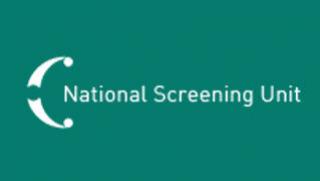- Home
- News
- Screening Matters, Issue 47, August 2014
- Keeping ahead of advances in screening
News
- Screening Matters Newsletter
- April 2019
- April 2018
- December 2017
- August 2017
- April 2017
- December 2016
- October 2016
- March 2016
- November 2015
- August 2015
- June 2015
- April 2015
- February 2015
- December 2014
- October 2014
- August 2014
- June 2014
- April 2014
- February 2014
- December 2013
- October 2013
- August 2013
- June 2013
- April 2013
- February 2013
Screening Matters
The National Screening Unit newsletter
In this issue:
- New Zealand’s approach to equity in screening interests NHS
- September is Cervical Screening Awareness Month!
- Innovative approach increases cervical screening numbers
- New breast screening provider in the south
- New appointments for BreastScreen Aotearoa
- Keeping ahead of advances in screening
- Declining a smear or withdrawal from the NCSP
- New framework for equitable health care for Māori
- Loud Shirt Day
Keeping ahead of advances in screening

Antenatal screening
For antenatal screening for Down syndrome and other conditions, the role of non-invasive prenatal testing (NIPT) is being considered.
NIPT involves testing the small amounts of foetal DNA circulating in maternal blood. Research indicates NIPT is more accurate than current methods, which would reduce the number of women offered more invasive diagnostic tests. Read more about current antenatal screening here.
Newborn hearing screening
Following an independent review, the Newborn Hearing Screening Programme is being simplified. The review recommended implementing a single screening test rather than the current two, and standardising the equipment used.
These changes should mean more sensitive screening and earlier detection of hearing loss in newborns, while reducing the inconvenience of outpatient appointments for families. The changes are related to a range of improvements to the screening programme that are underway. Read more about quality improvements for newborn hearing screening here.
Cervical screening
The NSU is also looking at a move to human papillomavirus (HPV) primary screening for cervical screening.
HPV primary screening is a slightly different way of the laboratory examining cervical screening tests. What happens at a cervical screening appointment won’t change, but as HPV screening is likely to perform better it may mean women do not need to be screened as often as every three years. Read more about HPV testing here.
What happens next?
NSU will review the evidence about these latest advances from a New Zealand perspective and consult with the health sector before any changes are made. Women and parents of children screened under these programmes can be assured that any changes will bring real benefits and further improve the quality of screening.
To receive the Screening Matters newsletter by email, fill out our sign-up form.

